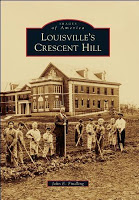Call Your Daughter Home
By Deb Spera
Park Row Books
Hardcover 352 pages
$26.99
Review by Keith Waits
Entire contents are copyright © 2019 by Keith Waits. All rights reserved.
The literature of the American South has been a dominant strain in American letters for several generations, and from Flannery O’Connor to Carson McCullers, women have been significant contributors to this genre.
Louisville native Deb Spera may not yet earn a spot in such august company, but her engrossing debut novel is a rich and evocative tale that examines early 20th-century rural southern culture through the lens of early 21st-century reactionary feminism.
Not that Spera is riding trends here. She presents three South Carolina women who reside in the same low country region but who occupy distinctly separate social stations even while they eventually live and work side by side. Gertie, a swamp-dwelling mother of four daughters, escapes brutal physical abuse at the hands of her husband, Retta, a freed slave who still works for The Coles, the wealthy family who once owned her family, and Annie, the wife to Edwin Coles, the paterfamilias.
All three women share the pain of loss: Retta a daughter, Annie a son, and Gertie seems to be losing herself, even while she fights to survive with a fierce determination. They also share the traditions associated with place and time that are hallmarks of Southern literature. How to kill an alligator, (“You got to watch for the weakness, and take your shot to the back of the head.”), the “pudding” that is the soft, savory product of pig’s intestines, and more home cure remedies than you can shake a stick at.
Within the attention to the details of heat and geography, however, Spera excavates the deepest truths of how these women have suffered profoundly at the hands of men. The patriarchal structure of the Deep South is built to excuse the evil in the most upstanding of its citizens, forcing some sins to be answered with violence. Even in a society steeped in Christian faith (all the women are fervent believers who frame their self-awareness within a relationship to God) prayer may not adequately address the obstacles faced in these pages.
Without redundancy, the book alternates the first-person point of view between the three women, chapter for chapter. The structure walks a razor’s edge in the tension-filled climax, threatening to collapse into confusion, but Spera threads her way through the series of incidents with skill enough to provide clarity.
Women are the center, even if the men don’t usually realize it. The wealth of work and dogged feminine determination on display is staggering – when the location moves in the final chapters to a post-harvest Camp, I finally understood exactly what the term “camp meeting” really meant, and the specter of abandonment looms as both threat and redemption throughout.
And when I conjure up a relationship to women’s empowerment movements of the moment in which the book finds itself being published, it is not a stretch, as Spera identifies the depths of degradation respectable men of power have always allowed themselves in the name of social stability.
Keith Waits is a native of Louisville who works at Louisville Visual Art during the days, including being the host of LVA’s Artebella On The Radio on WXOX 97.1 FM / ARTxFM.com, but spends most of his evenings indulging his taste for theatre, music and visual arts. His work has appeared in LEO Weekly, Pure Uncut Candy, TheatreLouisville, and Louisville Mojo. He is now Managing Editor for Arts-Louisville.com.





